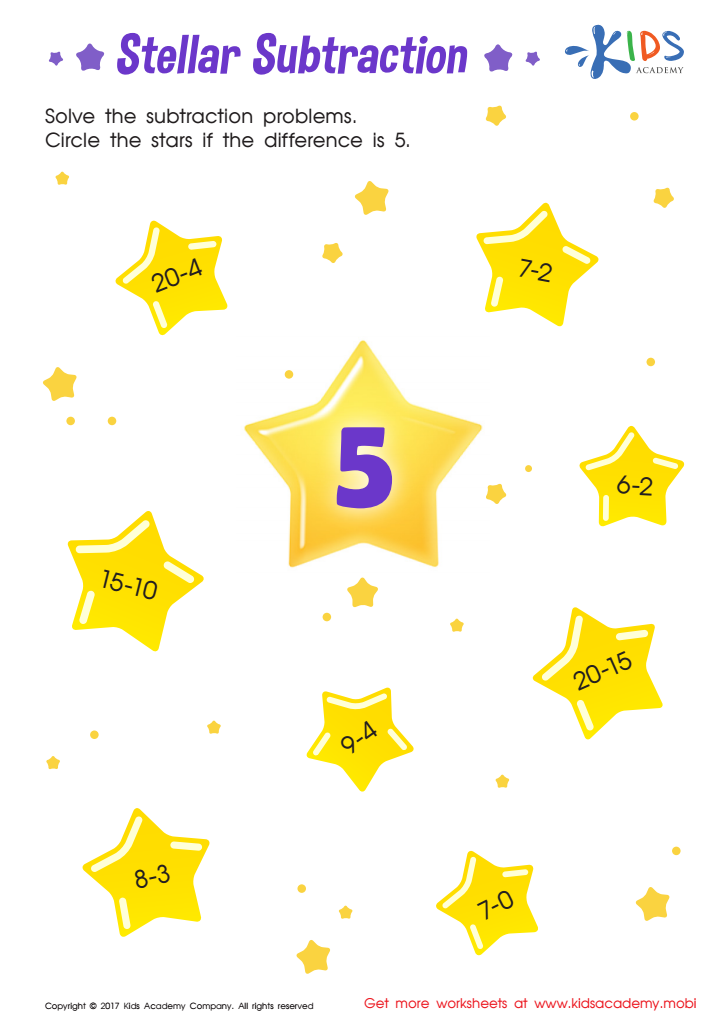Subtraction practice Math Worksheets for Ages 4-5
50 filtered results
-
From - To
Welcome to our engaging Subtraction Practice Math Worksheets for ages 4-5! Designed to foster early numeracy skills, these interactive and visually appealing worksheets help young learners grasp the concept of subtraction through fun activities. With a variety of exercises, including visual aids and themed problems, children will enjoy practicing subtraction in a playful way. Our worksheets are perfect for parents and teachers looking to enhance math skills in a supportive learning environment. Encourage your little ones to explore subtraction confidently, laying a strong foundation for future math success. Download today and watch your child thrive in their mathematical journey!
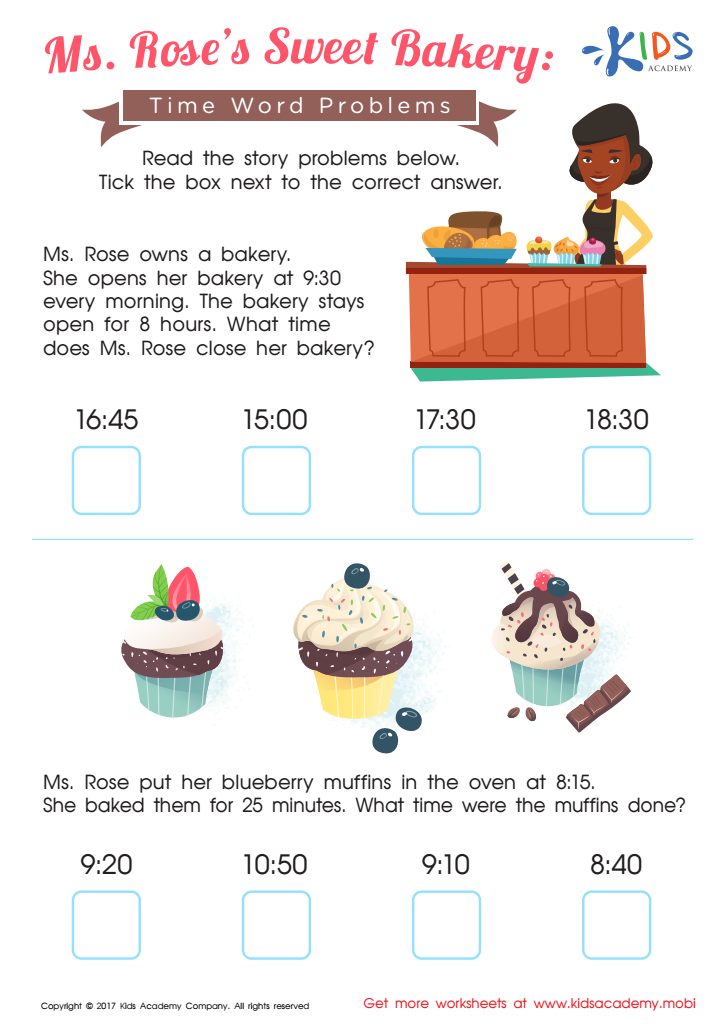

Ms. Roseв's Sweet Bakery Time Worksheet
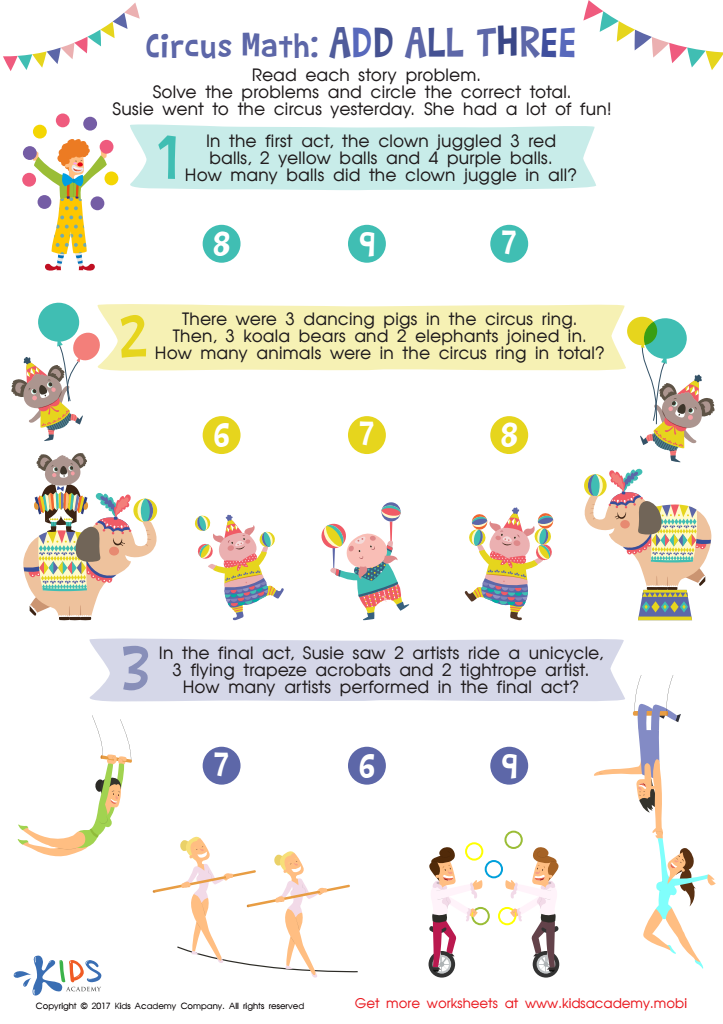

Circus Math Printable
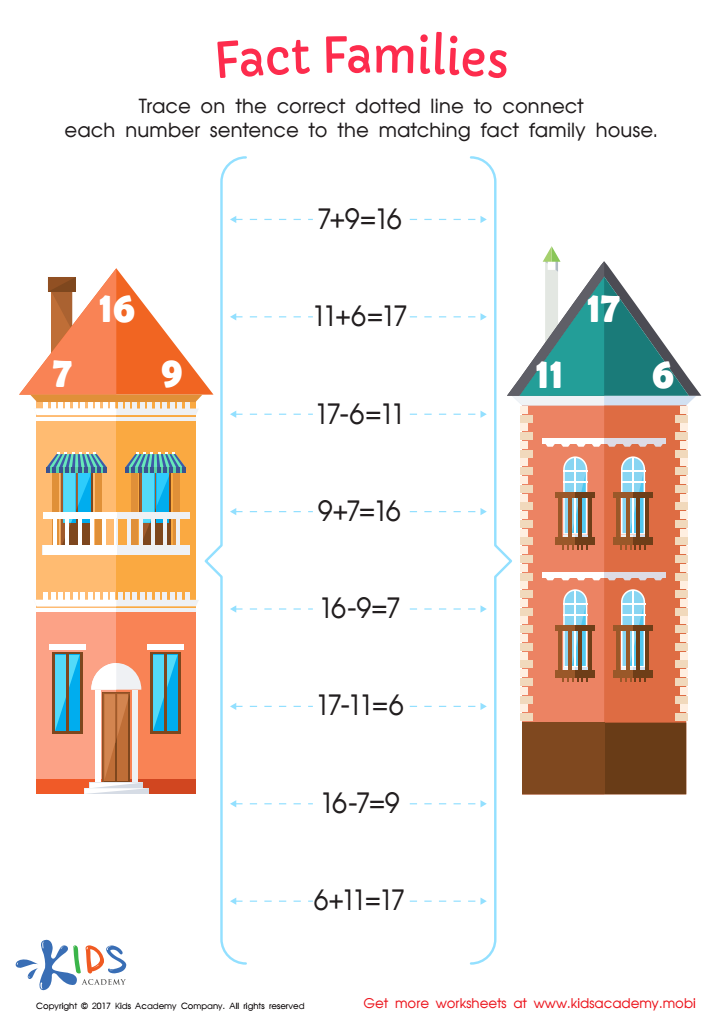

Fact Families — Add and Subtract Worksheet
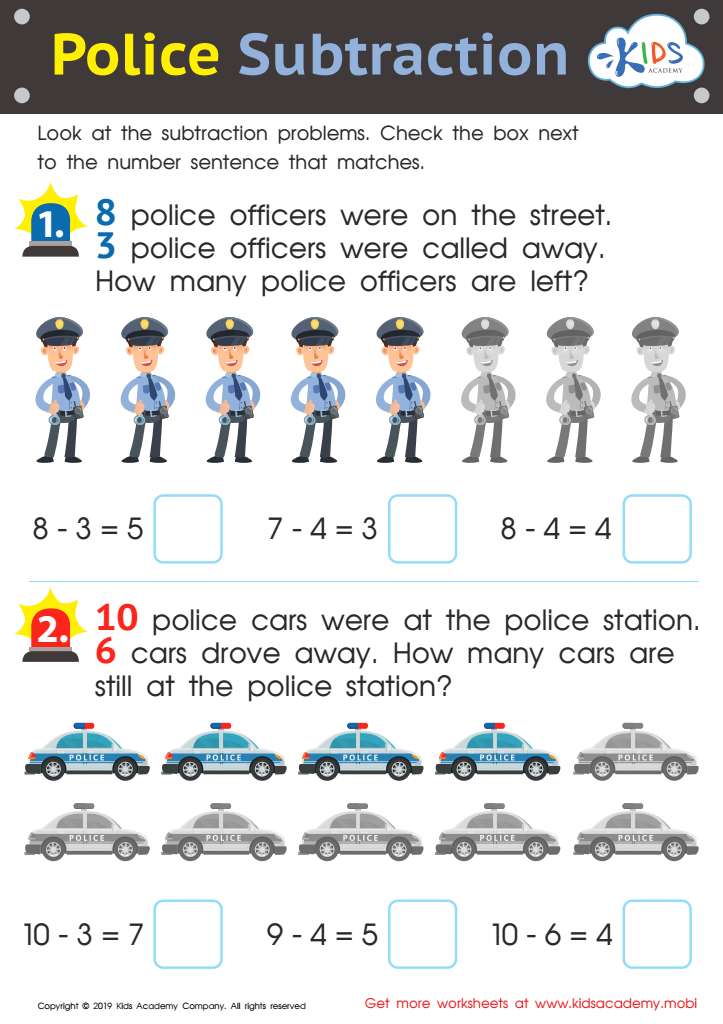

Police Subtraction Worksheet
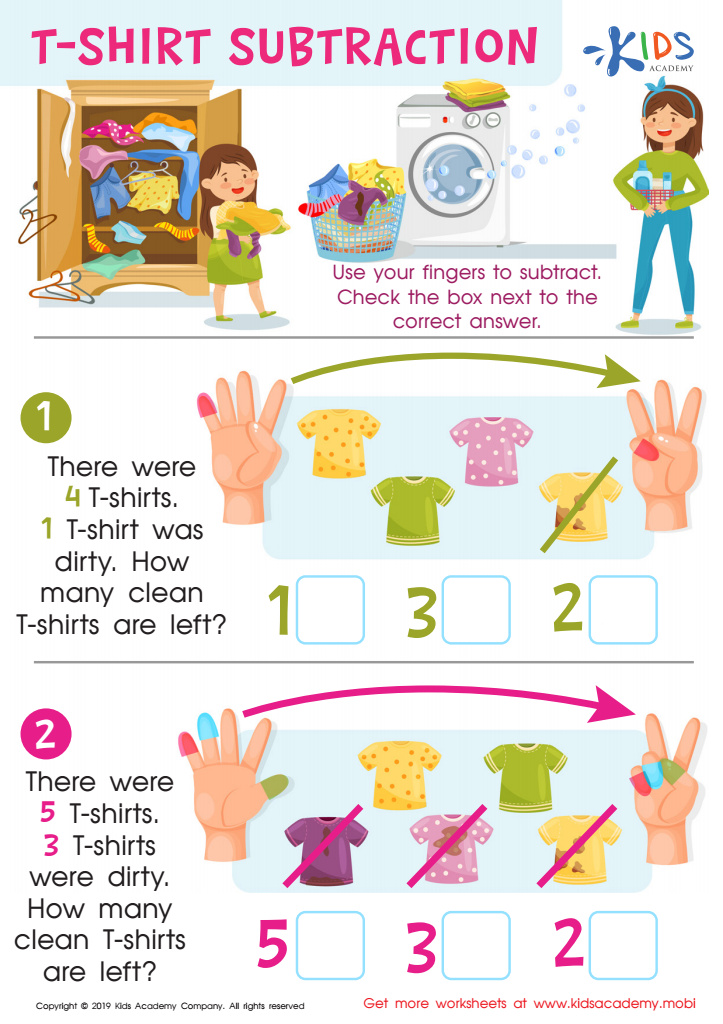

T-shirt Subtraction Worksheet
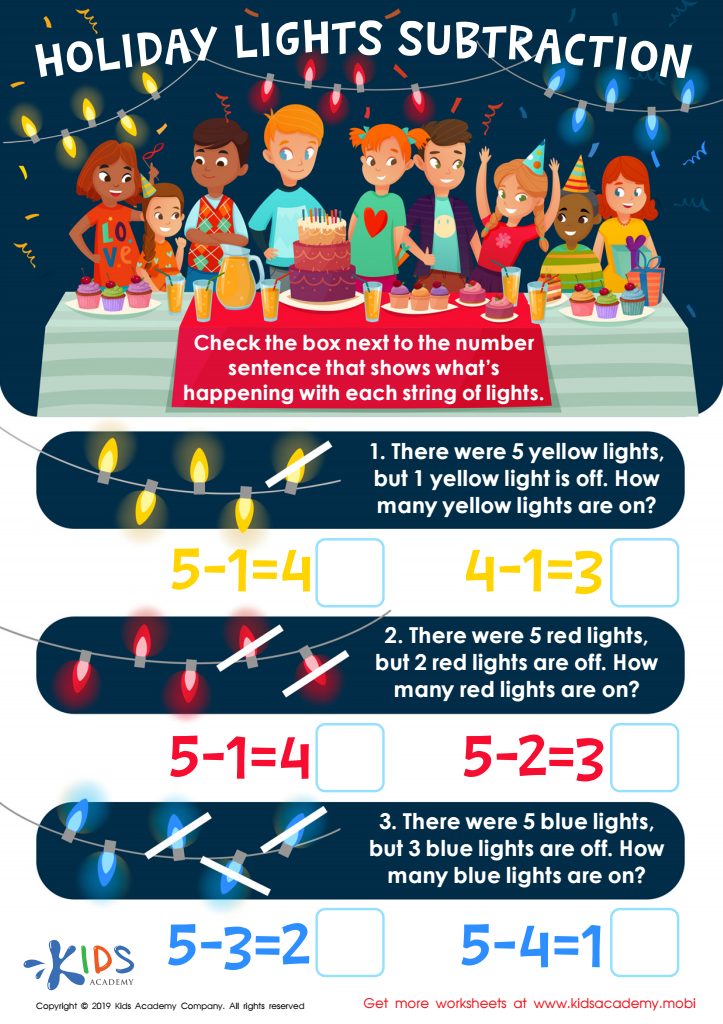

Holiday Lights Subtraction Worksheet
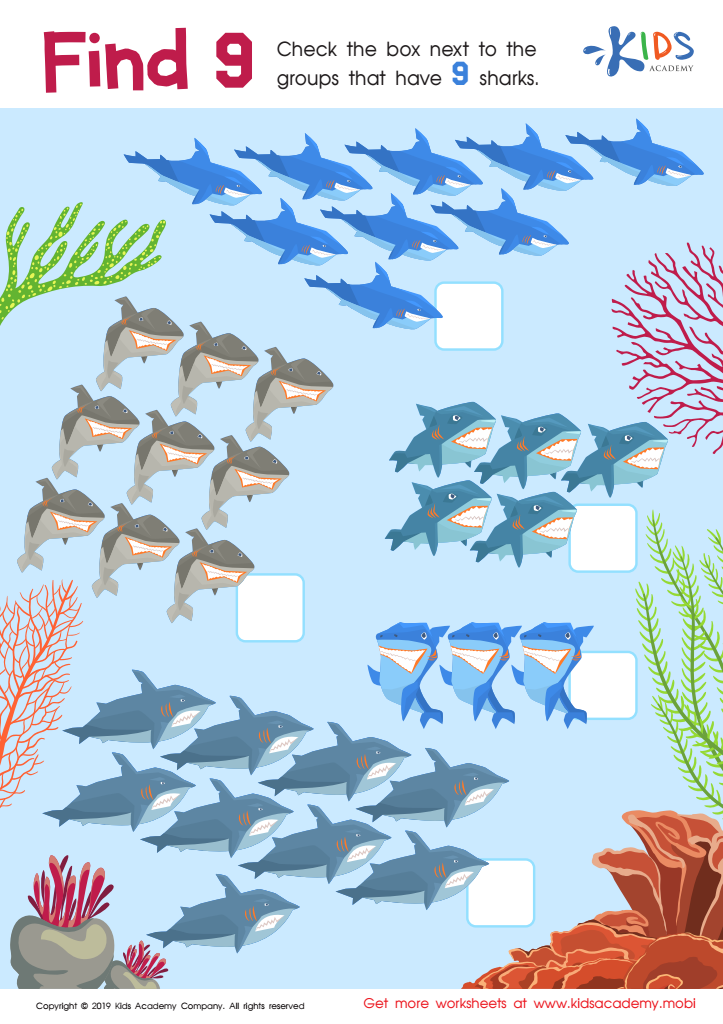

Find 9 Worksheet
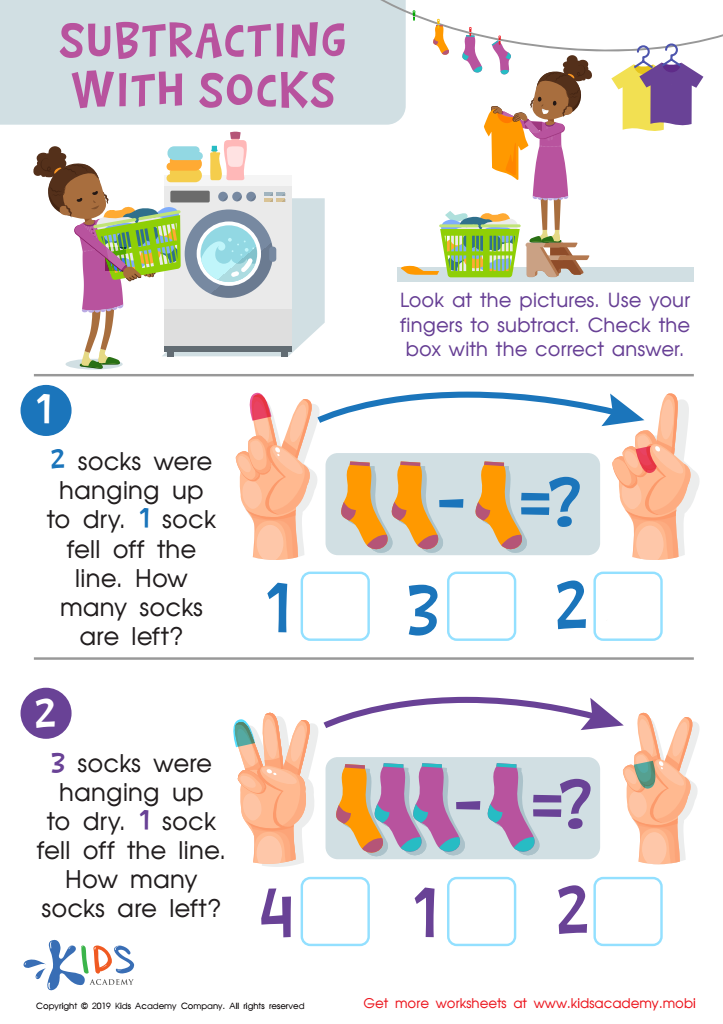

Subtracting Socks Worksheet
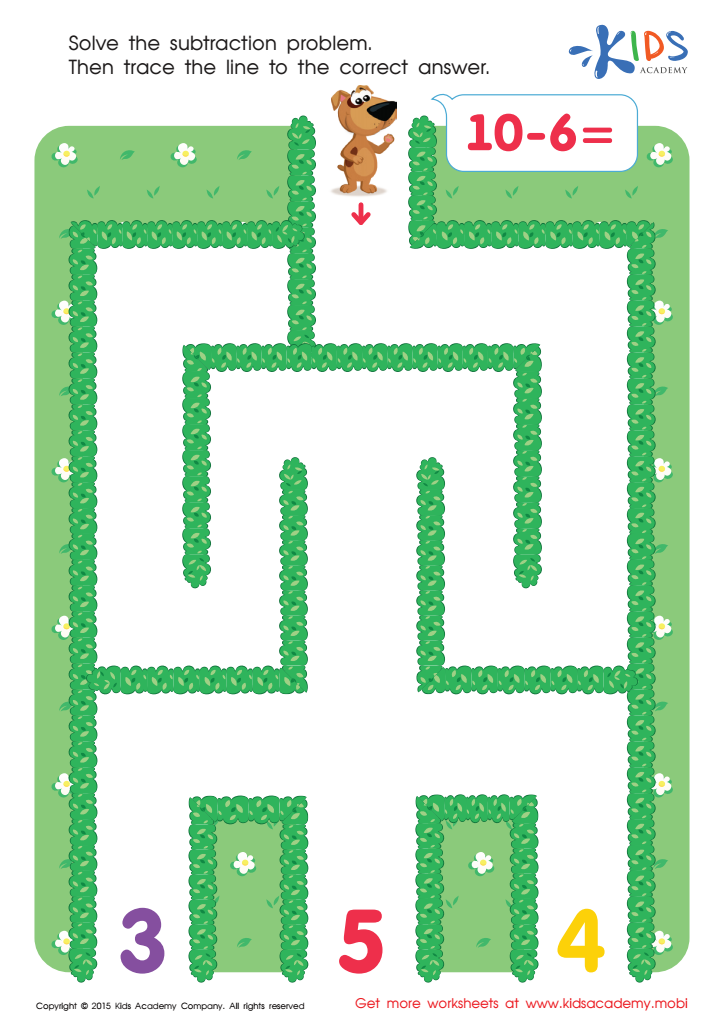

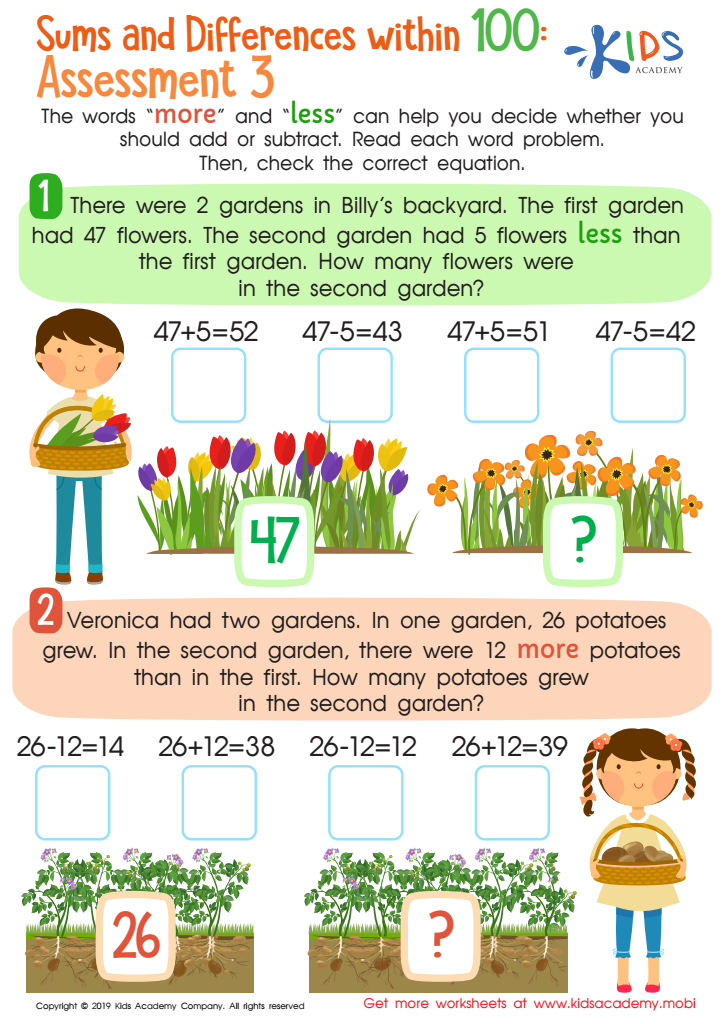

Sums and Differences Within 1 - Assessment 1 Worksheet
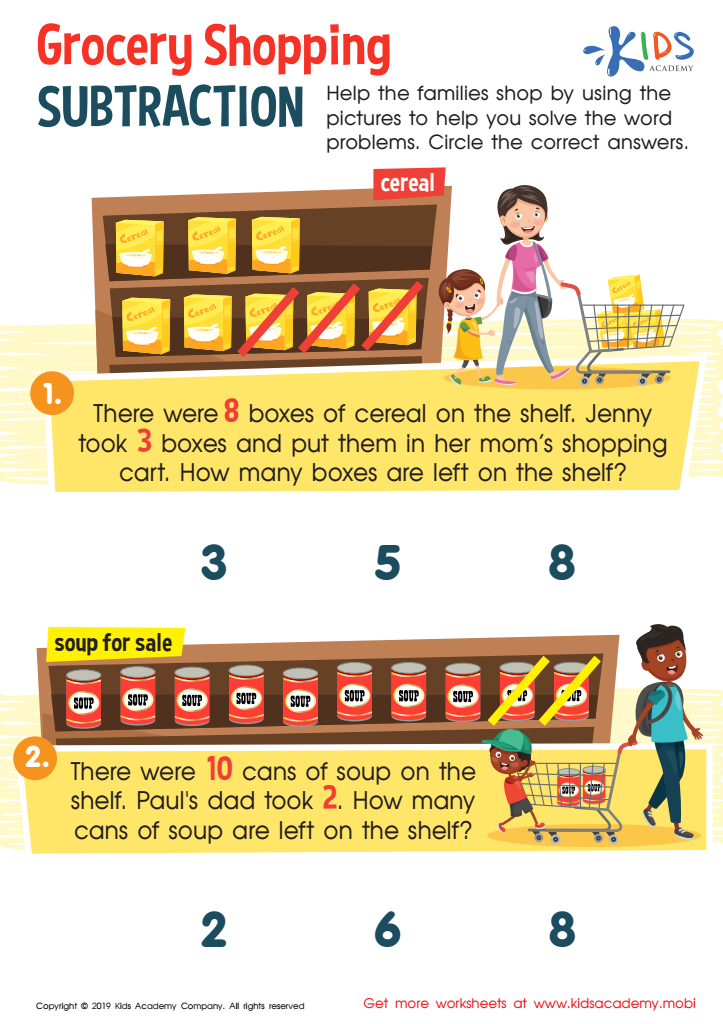

Grocery Shopping Subtraction Worksheet
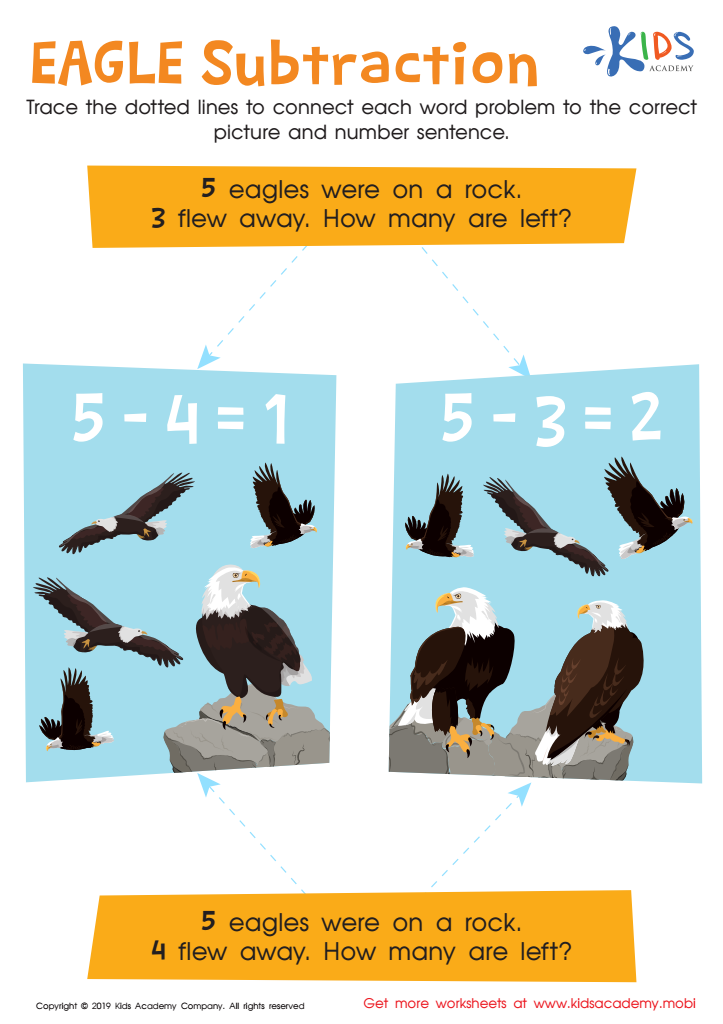

Eagle Subtraction Worksheet
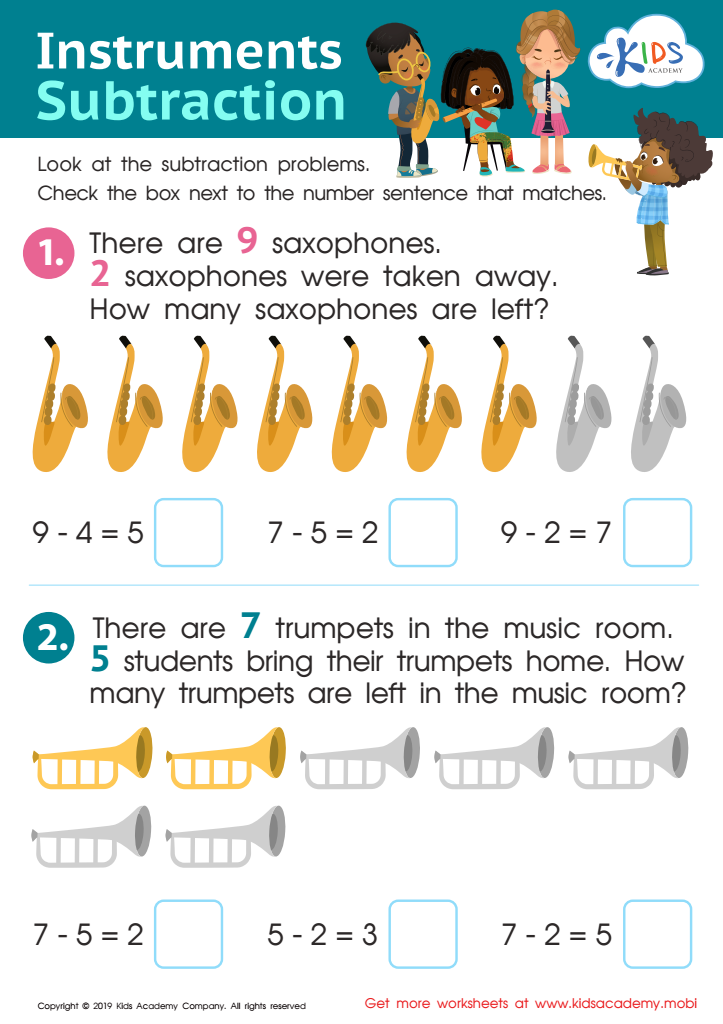

Instrument Subtraction Worksheet
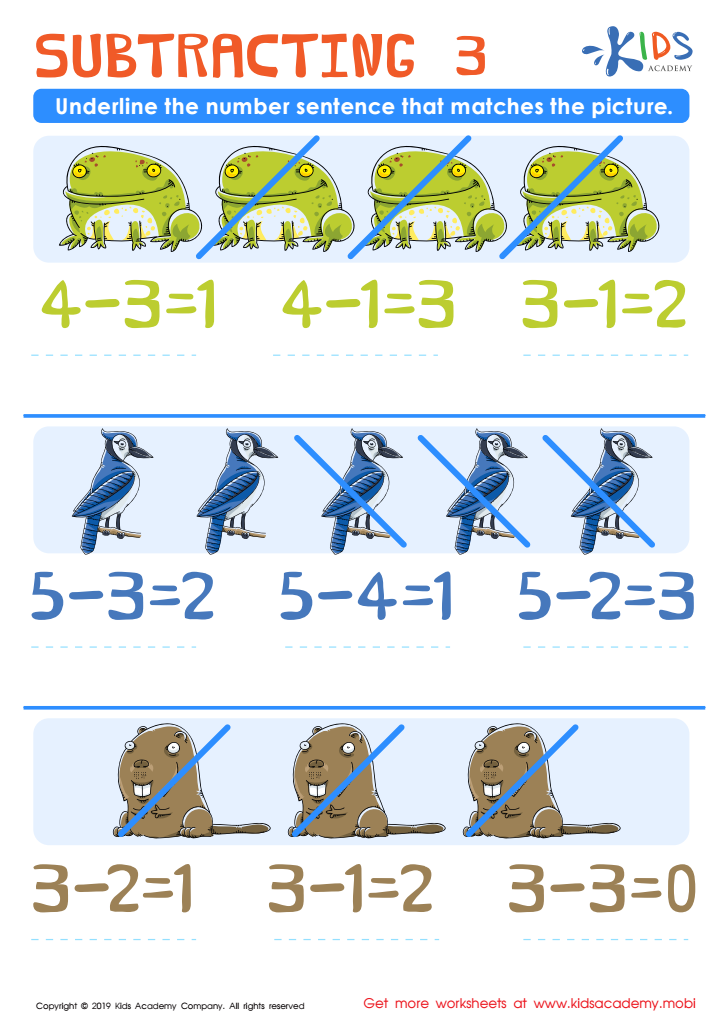

Subtracting 3 Worksheet
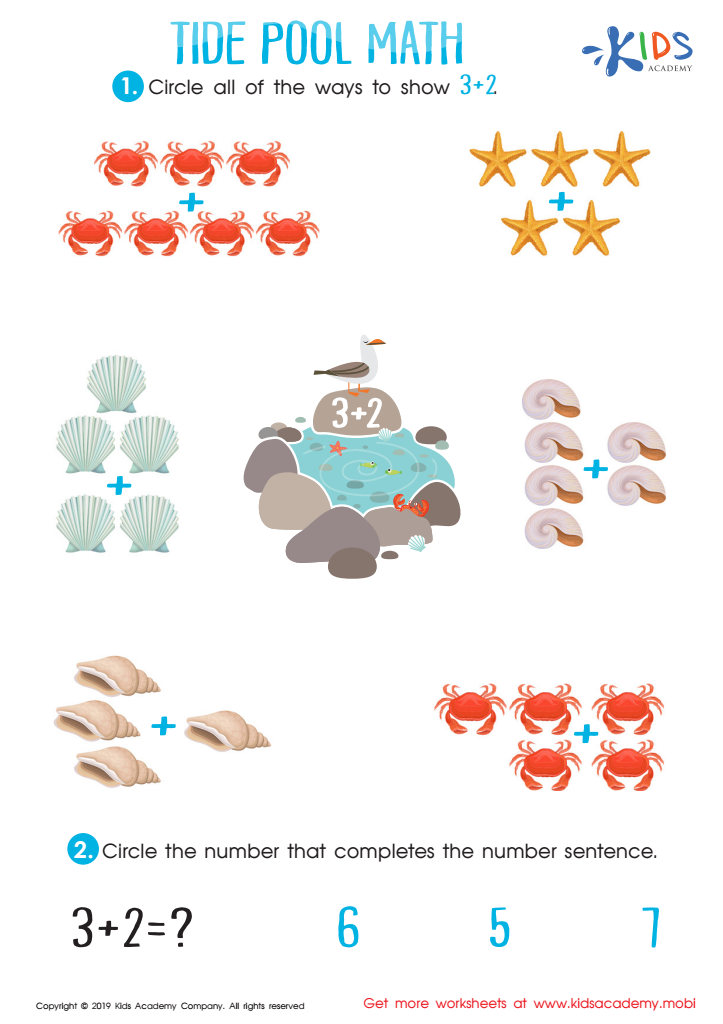

Tide Pool Math Worksheet
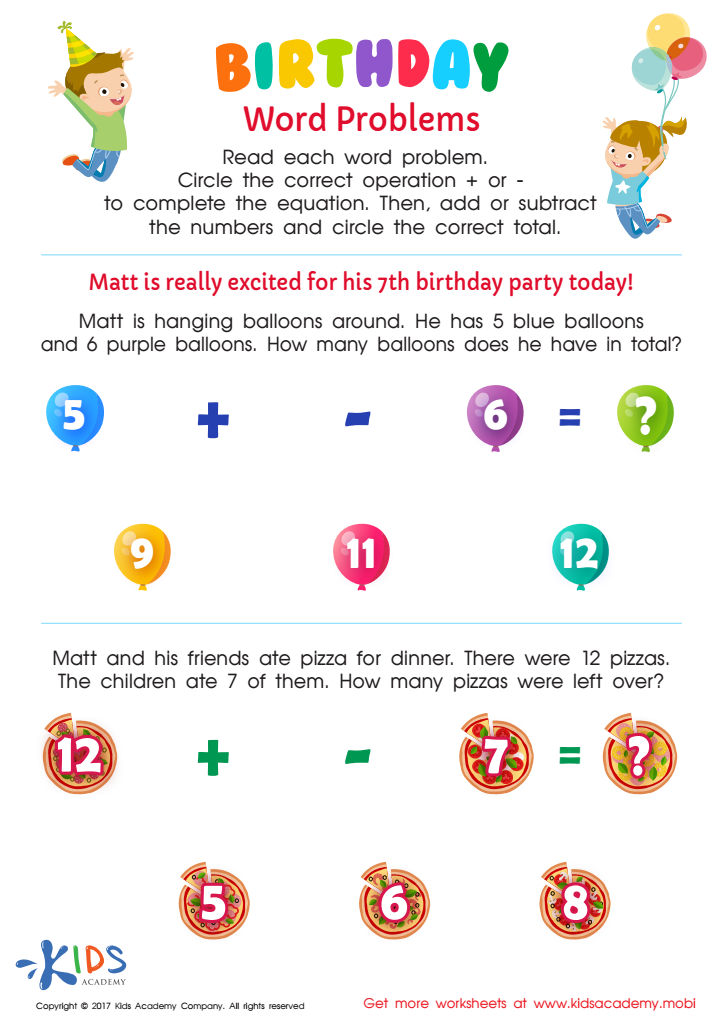

Birthday Word Problems Substraction Worksheet
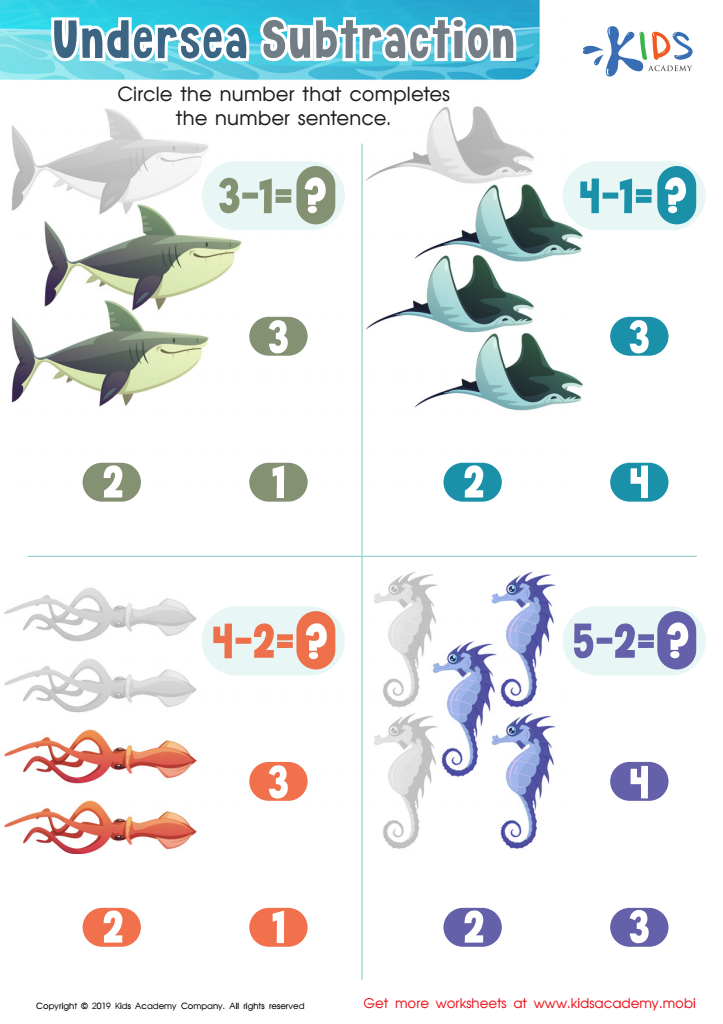

Undersea Subtraction Worksheet
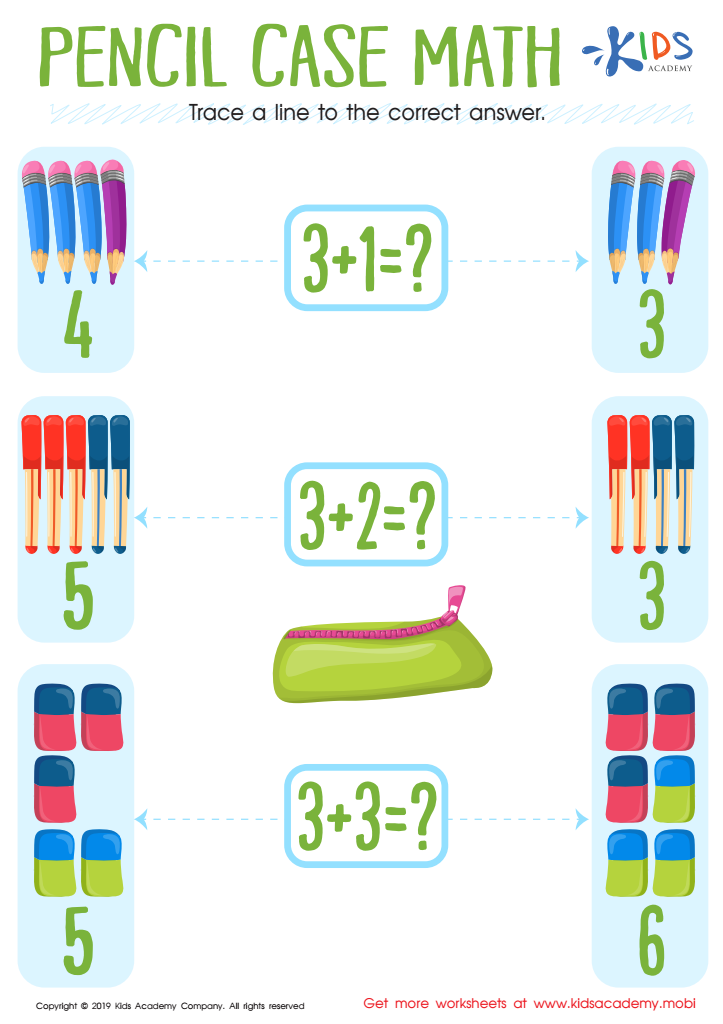

Pencil Case Math Worksheet
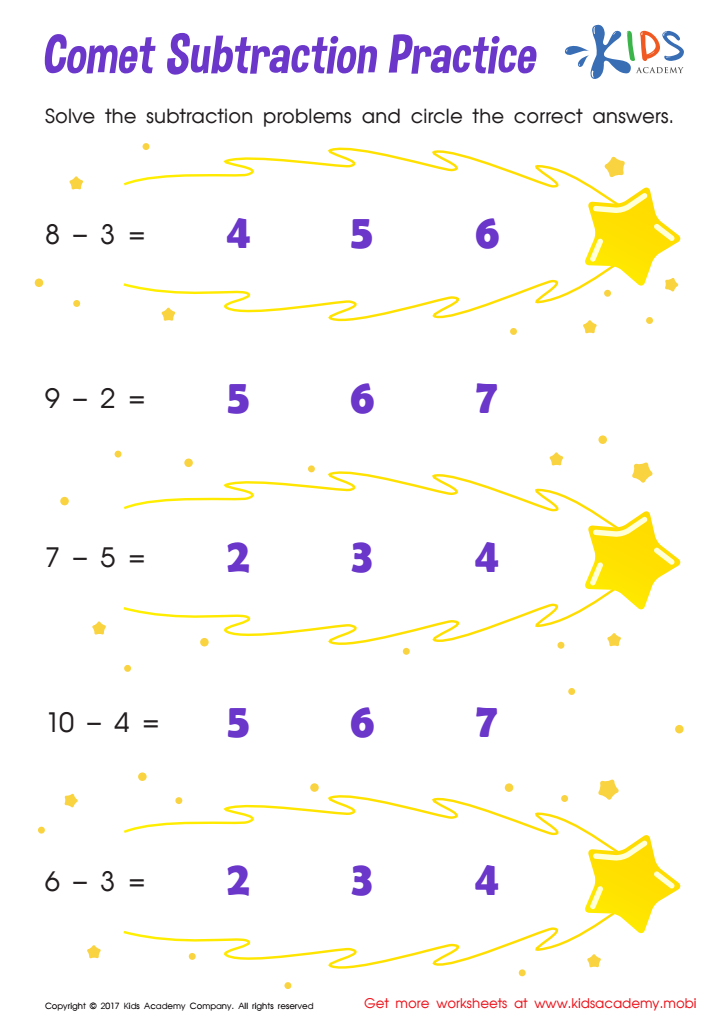

Comet Subtraction Practice Substraction Worksheet
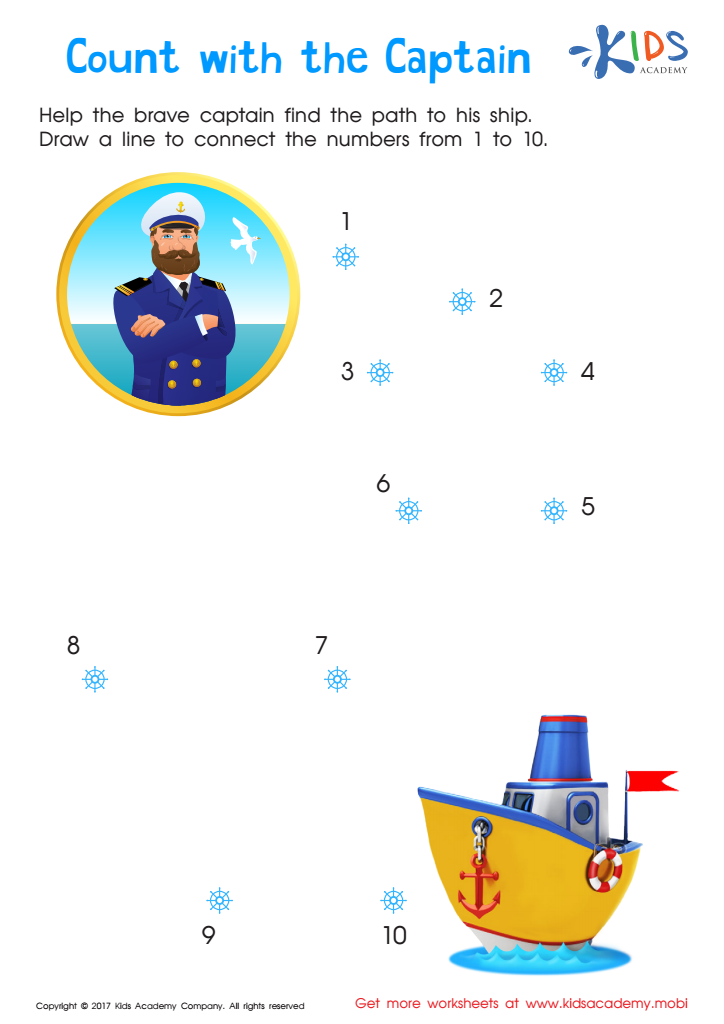

Count with the Captain Connect Dots Worksheet
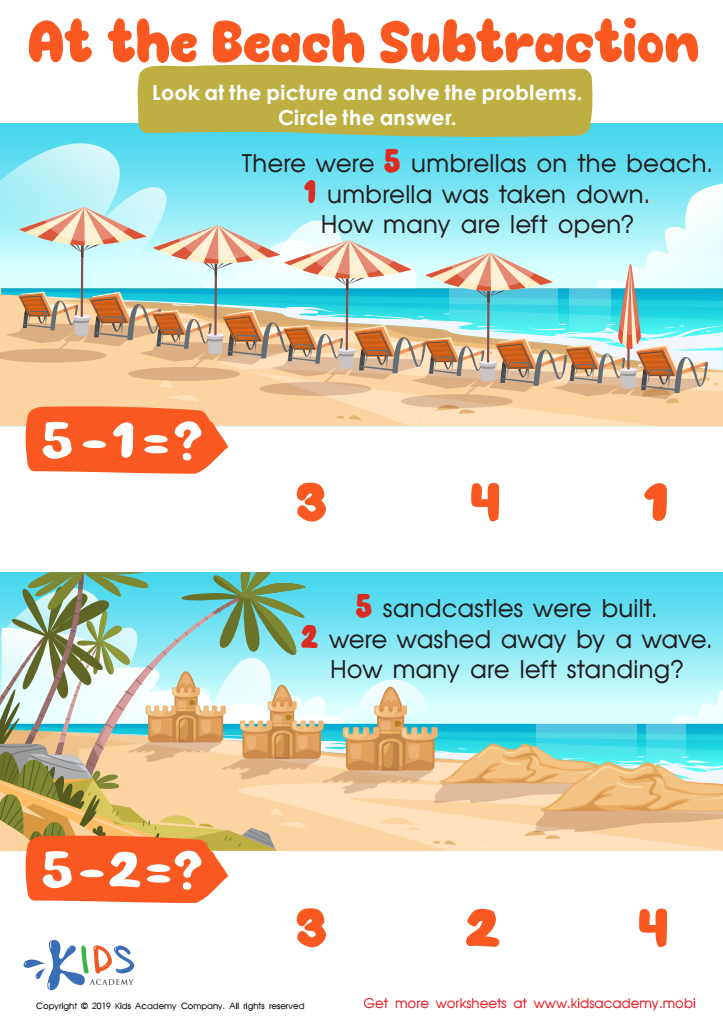

At the Beach Subtraction Worksheet
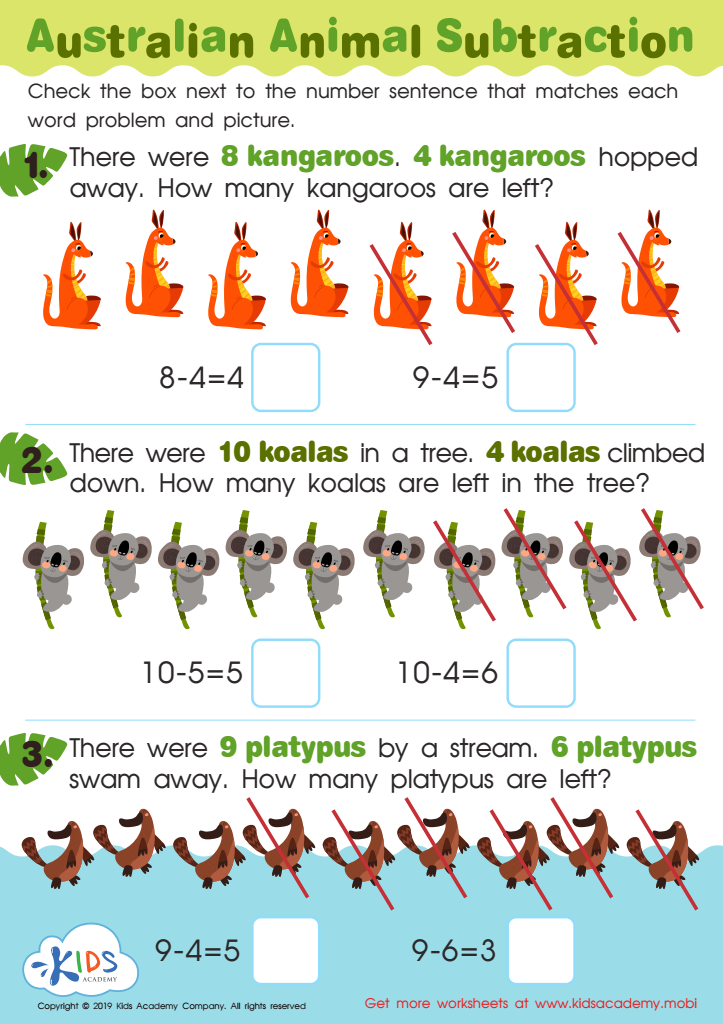

Australian Animal Subtraction Worksheet
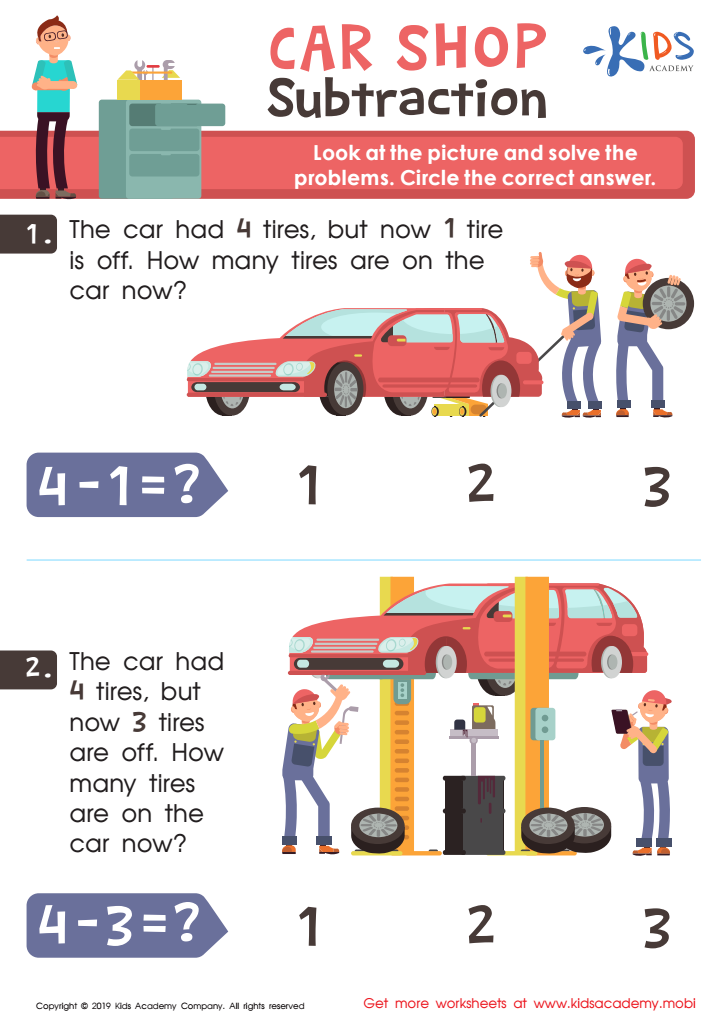

Car Shop Subtraction Worksheet
Subtraction practice for 4-5-year-olds is crucial for building foundational math skills. At this age, children are just beginning to understand numbers and basic operations, making it the perfect time to introduce subtraction in engaging ways. Effective early subtraction practice helps kids develop critical thinking and problem-solving abilities, which are essential for later math concepts.
Additionally, mastering subtraction fosters a stronger number sense. It helps children understand that quantities can be taken away and equips them with the ability to visualize and manipulate numbers mentally. This skill not only improves their overall math fluency but also enhances their confidence as they tackle more complex problems in the future.
Parents and teachers should be aware that subtraction is not just a standalone skill but interrelated with addition. These two operations are the building blocks of arithmetic, and comprehension in one supports mastery in the other. Incorporating fun, interactive activities—like finger counting, using objects, or incorporating games—makes learning subtraction enjoyable and effective.
Providing consistent subtraction practice can lay a positive foundation for children’s education, encouraging a lifelong appreciation for math. Additionally, supporting their learning journey at this vital stage can yield significant long-term academic benefits.
 Assign to My Students
Assign to My Students


